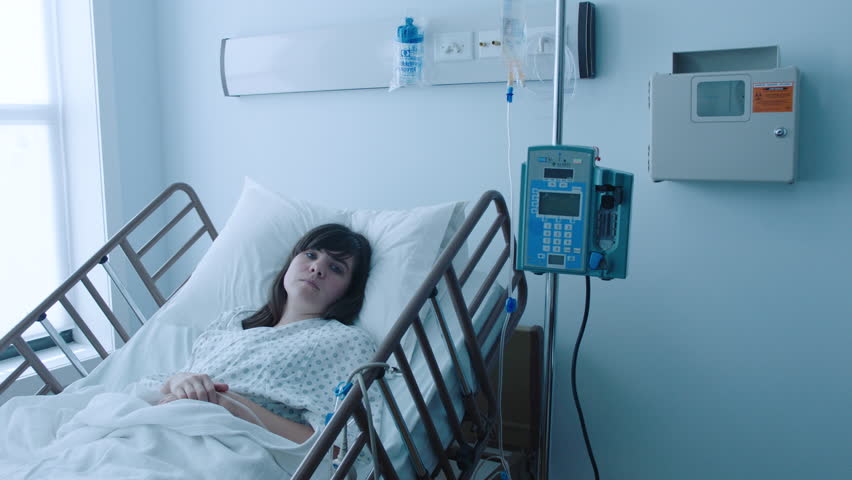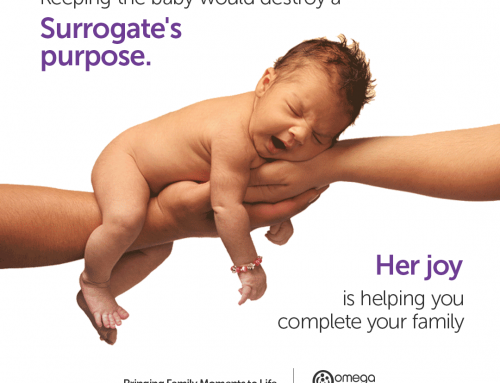I was never going to be able to be a mother
The moment I knew that I would never be a mother was when I woke up from ovarian surgery at 19 years of age and the doctor told me he had discovered the need to remove both my ovaries.
I just remember lying on the hospital bed, watching my dreams of motherhood flash before my eyes and disappear. The shock of the news left me motionless. My mother says that my eyes grew glassy and expressionless.
The doctor had looked me straight in the eyes and said that the operation had been a success, that I would feel no more pain, but that I was never going to have the opportunity to have children. Of course, I knew that, but it was still hard to believe.
I was in shock, and I didn’t recall the removal of both ovaries as a possibility before going into surgery. I understand that I had abnormal size cysts growing inside my ovaries, but wasn’t it just about removing them from the ovaries, not removing the ovaries themselves?
The Grieving Process
Before we begin, I would like to say that I am grateful for the fact that I knew I was infertile from a very young age. This helped me anticipate the common reactions people have to infertility and how to deal with it. This was most important when I spoke to older women, like my grandmother, about not being able to have kids. I was better prepared to understand her expectations, and society’s expectations on women and childbearing.
Phase 1: Sex, Sex, and More Sex. The first part of my grieving process was deciding that it was a “good thing” that I was unable to have children because I was in college and I could be free to have an active sexual life without having to use birth control. Many of my friends were worried about pregnancy scares and I knew I would never have to worry about that.
Phase 2: I don’t want to have kids. Going to school, working hard, and becoming a very successful professional can take its toll on family life. Many women have to balance kids and work, I would never have too. My earnings could be spent entirely on me and my lifestyle without having to worry about saving up for my kid’s college or buying a house. It was very selfish, but it wasn’t my fault that I couldn’t have children.
Phase 3: Inner Self. I do realize that just having sex without the fear of getting pregnant is an unhealthy mindset, a product of emotional hurt. I love children, I want to be that cookie-baking mom, I want to go to softball games and have snowball fights with my husband and my kids. Realizing this allowed me to heal. I had an amazing support group with my friends, my partner, and my family. This is when I began to heal.
Relationship with Others
I was in my late twenties when I understood what I wanted and stopped reacting to my heartbreaking infertility. It wasn’t easy, but little by little, I got to where I needed to be. People would always look at me with pity because I wasn’t able to have children. Some men decided not to engage in a serious relationship with me because of my inability to have children.
As I got older, my friends began to get married and have children. I realized that many wouldn’t tell me they were pregnant because they didn’t want me to feel bad. One of my friends who was serving as a Surrogate admitted to me that she didn’t share the news of her confirmed pregnancy because of my infertility. I do appreciate their concern, but I am happy for them. It hurts me more to be excluded from their lives than having them tell me their happy baby moments.
I am now married, my husband and I have two children of our own. We had our first child through surrogacy, and since I did not have my ovaries, we went to an egg donor agency where we were able to choose an egg to be fertilized with my husband’s sperm. Once our baby was 2 years old we adopted our second child. What I liked about that, is that our adopted daughter is the same age as our son. We find that amazing.
How to speak with those who struggle with infertility
It is very important to know how to deal with people who are going through infertility. This is why my husband and I have laid out a couple of tips of how to deal with someone who faces infertility:
- Understand the Struggle Talk to your friend about her feelings, suggest that she/they find alternate ways to create a family. Join her/them on her/their quest if she/they allow(s) it. Be there for her/them. If getting pregnant for you was simple, embrace it, because not everyone is as lucky.
- Don’t pity those who are infertile. There is more than one way to become a parent, thanks to medical developments and adoption. Believe that those friends will find the perfect family creation option that will fit their situation.
- Don’t deny your infertile friends the happy news of your pregnancy. Just because a friend can’t have a child doesn’t mean that you should hide your baby joys with her. It hurts more to be cast out than to hear of fertility success.
If you would like to provide Intended Parent’s the opportunity of a child, please press the button below and apply to become an Omega Family Surrogate.




